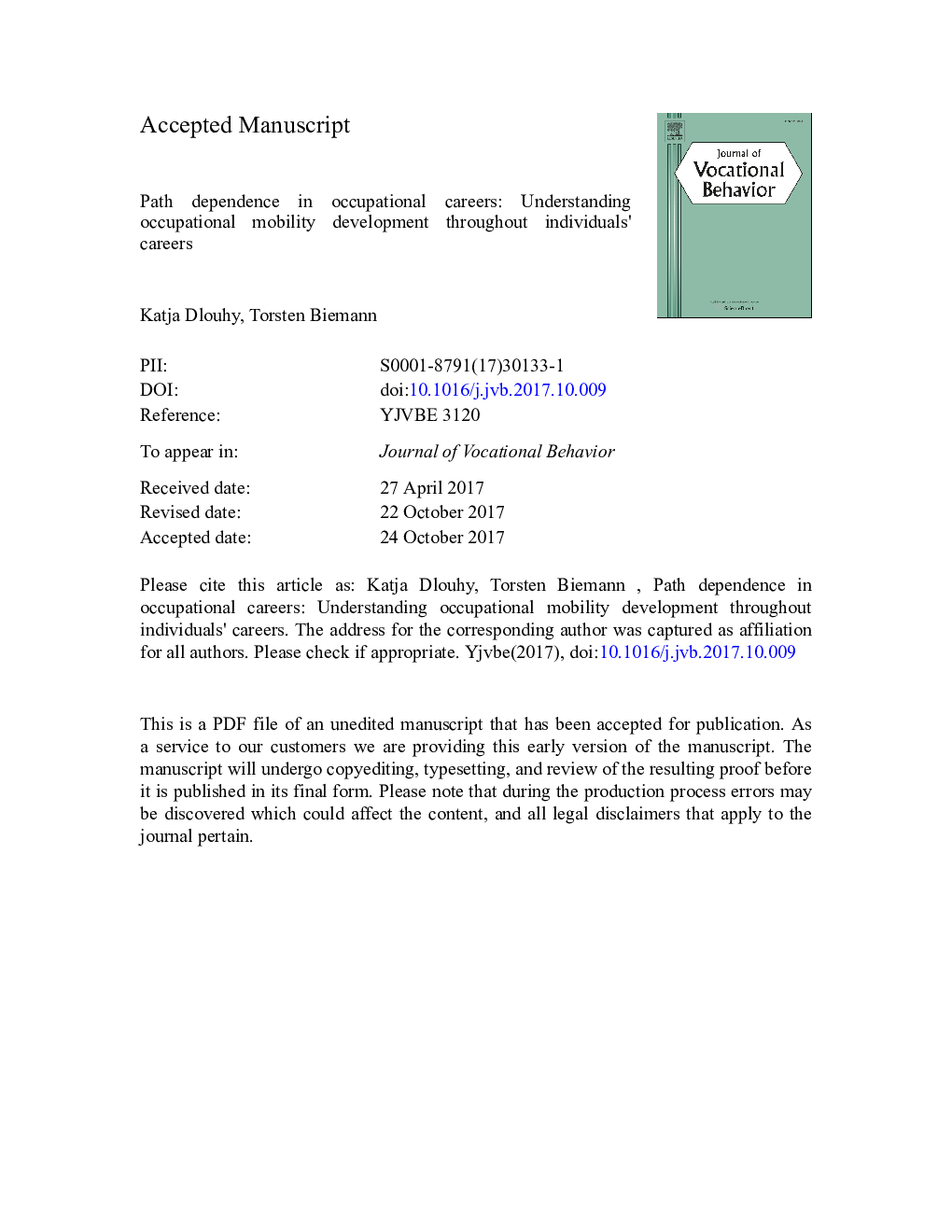| Article ID | Journal | Published Year | Pages | File Type |
|---|---|---|---|---|
| 7247374 | Journal of Vocational Behavior | 2018 | 39 Pages |
Abstract
The progression of occupational careers can be conceptualized as a path-dependent process, in which former decisions affect the range of occupational alternatives. The impending losses of human capital increasingly dissuade individuals from changing their occupation. We suggest that path dependence will lead to a decrease in mobility in occupational careers over time, and that occupational turbulence in the earlier career stages will be linked to turbulence in the later stages of an occupational career. Our sample comprises the first 15Â years after entry to the labor force in the occupational histories of 456 individuals from Germany. To test our assumptions, we introduce a method that allows us to examine the turbulence - that is, the number of occupational transitions and/or distinct occupations and/or the variation in the duration and timing of events - in occupational career trajectories. In support of our hypotheses, turbulence in occupational careers is linked to the turbulence of the further occupational career path and decreases over time. Gender also has a considerable effect on occupational turbulence. We discuss our findings and elaborate on theoretical implications for career research.
Related Topics
Social Sciences and Humanities
Business, Management and Accounting
Marketing
Authors
Katja Dlouhy, Torsten Biemann,
